Objectives
General Objectives
-Provide scientific applied data and advanced techniques to achieve the economic and social development goals of Arab arid and semi-arid areas.
-Propose water deficit facing policies, meet future requirements and utilize scientific and technological developments in water use rationalization.
-Adopt appropriate sustainable agricultural management policies to face land degradation, benefit from scientific and technological developments in optimal agricultural resources use, improve the productive capacity of lands in general and rehabilitate the degraded lands in particular.
-Develop and increase the productivity of rainfed agriculture in the Arab countries and achieve stability in production.
-Develop and increase the productivity of livestock in the Arab countries and ensure integration and coordination in providing animal product requirements.
-Protect environmental situation from degradation in the arid and semi-arid areas, conserve Arab biodiversity and benefit from the huge genetic diversity in production and productivity increase.
-Develop technical human resources to enable them to achieve the tasks of sustainable agricultural development, and develop the beneficiary local communities and encourage their participation into the development process of arid and semi-arid areas.
Sub-Sectoral Objectives
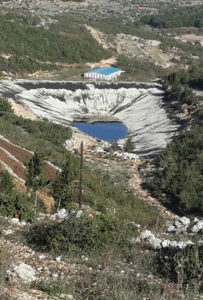
*In the field of water resources:
-Develop a comprehensive national plan, at the local and national levels, according to strategies that ensure facing the water deficit constraints and meet the future water requirements.
-Develop water resources and rationalize their uses to comply with the increasing water demand, taking into consideration ensuring integration among the various water sources and raising the surface and ground storage capacities.
-Conduct applied researches in the field of water resources development, evaluation and use rationalization to control water loss, raise irrigation efficiency and localize and utilize water techniques after testing their appropriateness.
-Adopt a water policy based on integration between the various developmental activities and demographic, economic, social and environmental policies, with a focus on water provision plans such as: agro-industrial development programs and housing projects, especially in civil expansion areas.
-Develop human resources in water sector to enable the staff to achieve its tasks and perform the goals of water security strategy. This can be done by developing and coordinating learning and training disciplines.
*In the field of lands and water uses:
-Support Arab countries in land resources mapping and databases 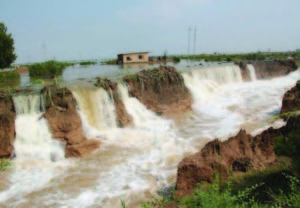 development based on the prevailing world systems, and provide the appropriate scientific recommendations for optimal land uses in a way that ensures land use and conservation and environmental systems protection.
development based on the prevailing world systems, and provide the appropriate scientific recommendations for optimal land uses in a way that ensures land use and conservation and environmental systems protection.
-Develop scientific methodologies for land degradation monitoring and estimation and establish control systems at the national and regional levels.
-Identify policies for land degradation facing, and appropriate integrated packages for desertification risks control and combat through the implementation of pilot projects that increase productivity and contribute to comprehensive national development plans.
-Develop methodologies for sand encroachment control and sand dunes fixation.
-Develop optimal water management for saline, waste and treated water uses and find out scientific techniques and improved methods that ensure higher production, while conserving the productive land capacity and prevent land degradation.
-Develop scientific methodologies for math modeling to achieve the optimal use and appropriate management of water and soil.
*In the field of plant resources:
-Improve cereal crops productivity and develop genotypes of a wide adaptive capacity, high environmental-stress tolerance and high efficiency in rainfall water utilization, and multiply and distribute such genotypes among Arab countries.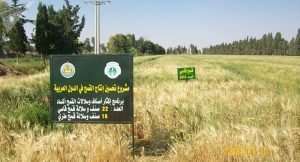
-Reconsider the prevailing agricultural systems and adopt new agricultural ones that ensure soil conservation, prevent degradation and increase the productive capacity of soils through an integrated connection among production, economy and environment. Such a connection is considered the successful solution to achieve agricultural systems sustainability and pave the way for a sustainable agricultural development.
-Increase sustainable agricultural intensification through new technical approaches that ensure the increase of water use efficiency, improve water absorption capacity of soils and utilize the limited quantities of agricultural residues, as well as improve physical and chemical soil properties and control soil degradation.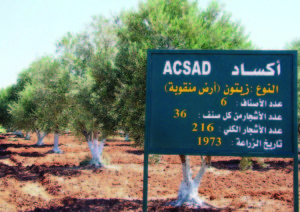
-Identify technical approaches that achieve the productivity increase of the fruit trees which are appropriate to the arid and semi-arid areas, and establish national and regional gene banks for such varieties to conserve them.
-Conserve rangelands and forestry systems, identify the methods of their conservation and development, develop standards for their management and rehabilitate the degraded parts of them.
-Identify technical approaches for conserving environment and biodiversity and combating desertification, and follow-up the implementation of international environmental conventions in the Arab region.
-Apply technical service and care operations for date palm trees in a way that ensures production increase, both in quantity and quality.
-Develop the human capacities of the animal production field.
–
*In the field of animal wealth:
-Develop a comprehensive national plan for livestock development and production increase in Arab countries, ensure integration and coordination in providing animal product requirements and benefit from the relative advantages of the Arab countries in this field.
-Organize animal production sector in the Arab arid and semi-arid areas by establishing specialized networks and associations for breeders, set up the necessary mechanisms for flock management and develop conventional 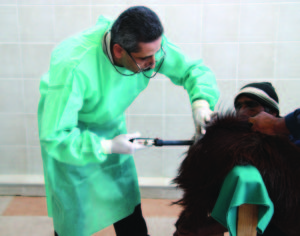 breeding systems.
breeding systems.
-Transfer improved genetic structures to breeders’ flocks by providing improved males of genetic improvement stations, implementing propagation programs and expanding the use of artificial insemination techniques and embryo transfer technology.
-Expand fodder cultivations whenever possible, use non-conventional fodders in making integrated rations in a way that complies with the available agricultural and food-industries residues in the Arab countries, and encourage the private sector to establish ready-made fodder processing units.
-Apply a health care system based on the prevailing diseases in the concerned areas, and encourage the establishment of veterinary service units for breeders’ flocks.
-Disseminate flexible systems for dairy product processing and meat preservation to be marketed in due course without getting corrupted.
-Improve the socio-economic situations of livestock breeders in a way that helps in their stability in specific areas and contributes to optimal animal production organization and utilization, while ensuring natural resources conservation and sustainability.
*In the socio-economic field:
-Provide databases on socio-economic properties of arid and semi-arid areas’ population and agricultural systems, identify the constraints of developed techniques adoption and work on disseminating research results and developed techniques based on clear economic and technical principles.
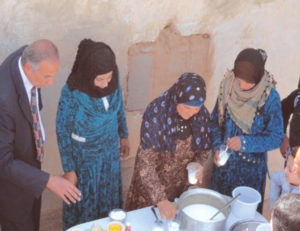 -Activate the role of Arab women in rural development process.
-Activate the role of Arab women in rural development process.
-Rehabilitate and train Arab staffs in the fields of arid and semi-arid areas development and socio-economic aspects.
-Develop economic reaction and coordination among Arab countries, and create wider investment opportunities to implement agricultural development projects based on the competitive and relative advantage in order to conserve the available resources, meet the current and future requirements and create appropriate sustainable job opportunities that meet labor markets and alleviate non-employment.


